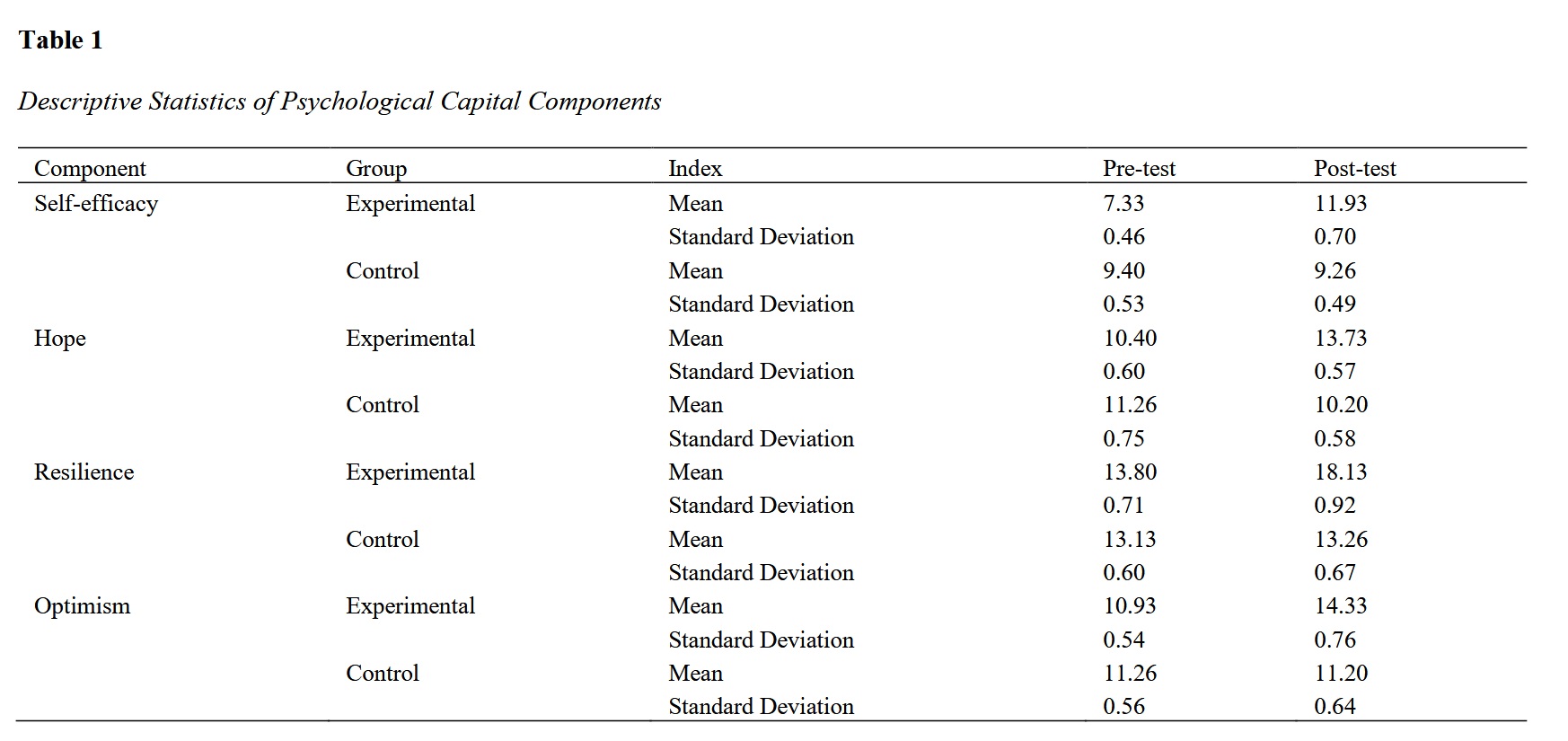The Effectiveness of Positive Psychological Training with an Islamic Approach on the Psychological Capital of Managers
Keywords:
Positive Psychology, Islamic Approach, Psychological Capital, School Managers, Self-Efficacy, Hope, Resilience, OptimismAbstract
Objective: The aim of this study was to determine the effectiveness of positive psychological training with an Islamic approach on the psychological capital of school managers.
Methods and Materials: This quasi-experimental study employed a pre-test and post-test design with a control group. The research population included all school principals in Kerman city during the 2023-2024 academic year. Thirty participants were selected using convenience sampling and randomly assigned to experimental and control groups (15 participants each). The experimental group underwent eight 90-minute weekly sessions of positive psychological training with an Islamic approach. Data were collected using the Psychological Capital Questionnaire and analyzed using SPSS 26, with multivariate analysis of covariance (MANCOVA) to assess the impact of the intervention.
Findings: The results showed significant improvements in the psychological capital components of the experimental group compared to the control group. Post-test mean scores for the experimental group were higher in self-efficacy (M = 11.93, SD = 0.70), hope (M = 13.73, SD = 0.57), resilience (M = 18.13, SD = 0.92), and optimism (M = 14.33, SD = 0.76) compared to the control group's scores. The MANCOVA results indicated significant differences between the experimental and control groups in all psychological capital components, with F ratios of 31.47 for self-efficacy, 56.22 for hope, 61.23 for resilience, and 17.20 for optimism (p < .001 for all).
Conclusion: Positive psychological training with an Islamic approach significantly enhances the psychological capital of school managers. This method proved effective in improving self-efficacy, hope, resilience, and optimism, aligning with previous research on the benefits of positive thinking and psychological well-being.
Downloads

Downloads
Additional Files
Published
Issue
Section
License
Copyright (c) 2024 Mahdi Taghavi Rafsanjani (Corresponding Author)

This work is licensed under a Creative Commons Attribution-NonCommercial 4.0 International License.














